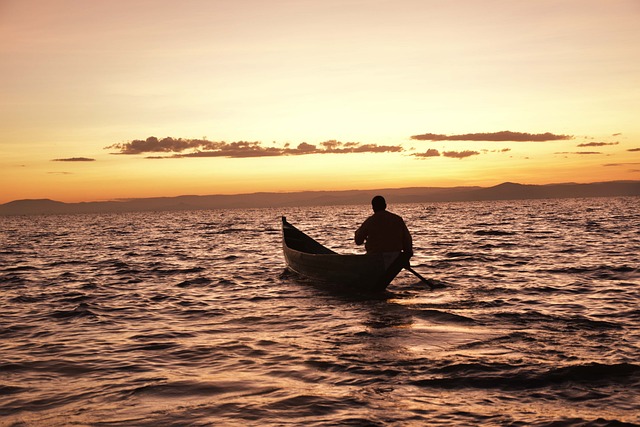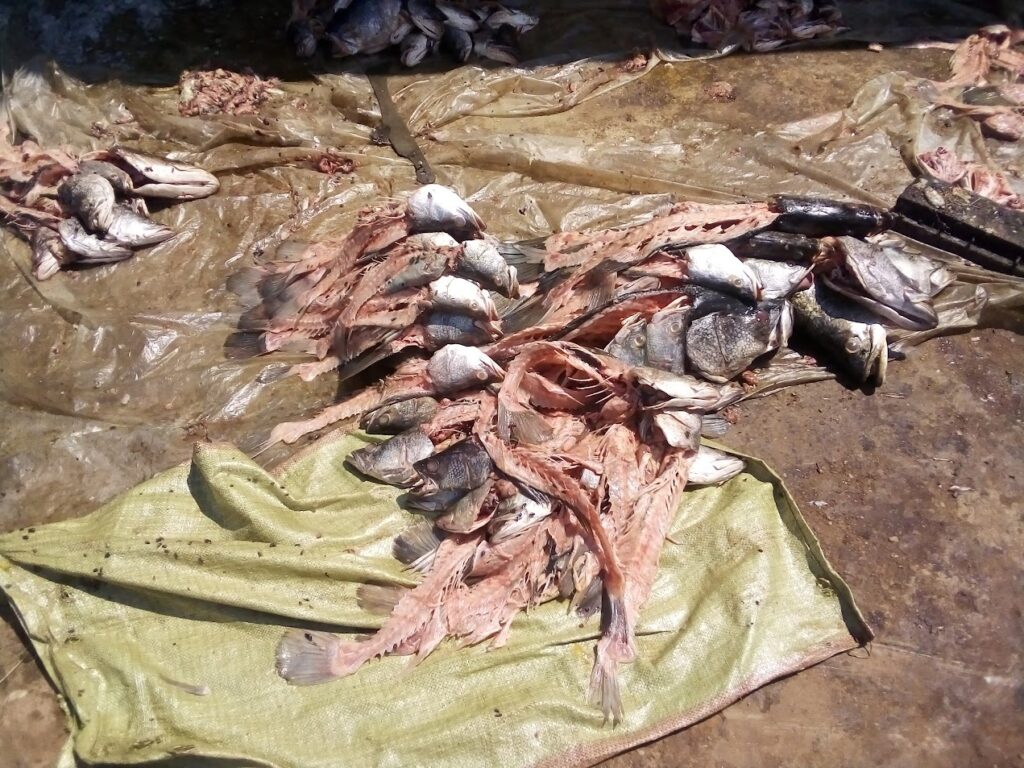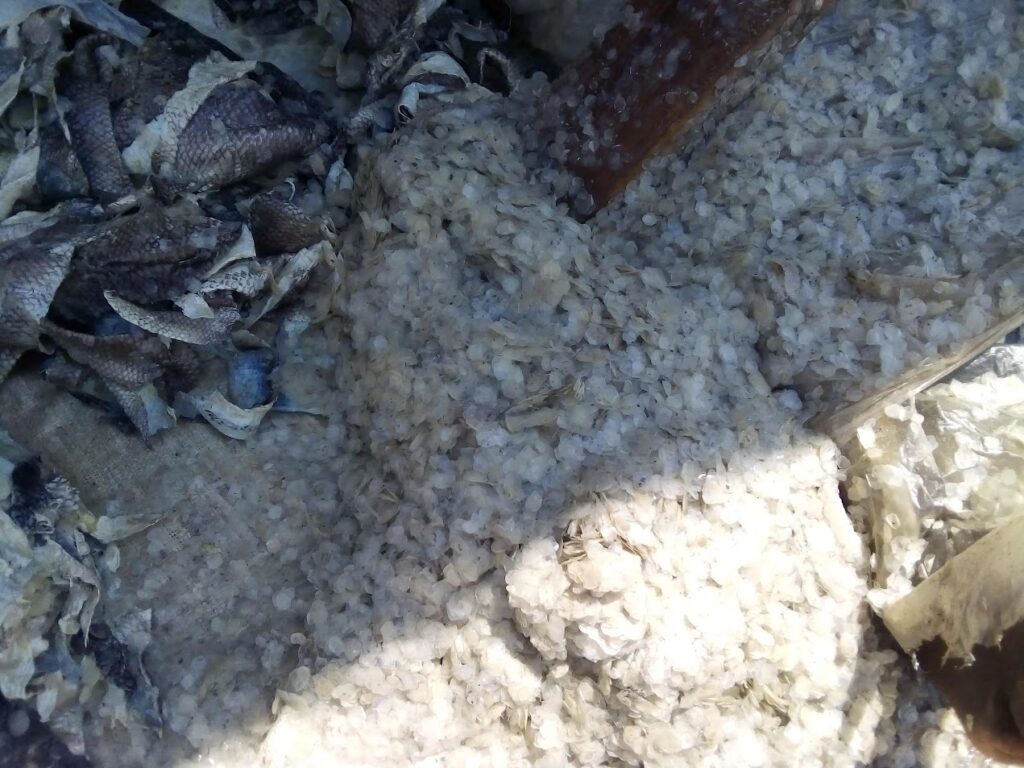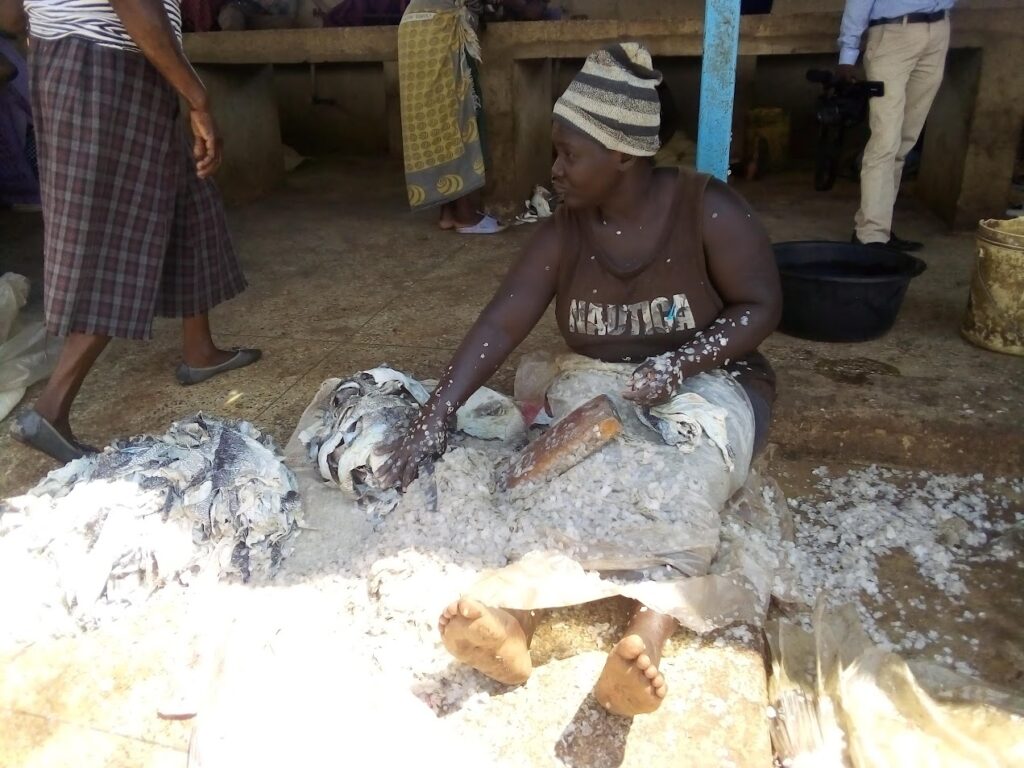
Sustainable initiatives to manage fish wastes and conserve Africa’s largest lake
Around 4 million individuals in Kenya, Tanzania, and Uganda collectively depend on Lake Victoria, the largest lake in Africa, for their livelihoods.
According to the African Great Lakes information platform, nearly 200,000 people are directly employed in activities related to the lake. However, the lake’s crucial natural resources are under threat due to the significant amount of fish waste being discarded into its waters on a daily basis.

Lake Victoria is home to a substantial population of Nile Perch, Tilapia, and Omena, which serve as a major source of income for communities residing around the lake. The processing of these fish into various products, however, generates considerable waste that ends up back in the lake and adjacent water bodies.
The Kenya Marine and Fisheries Research Institute reports that fishing activities contribute approximately 150,000 tonnes of fish waste annually, posing a looming environmental threat to Lake Victoria.
In response to this issue, communities surrounding the lake are taking the lead in implementing environmentally sustainable methods to minimize and eventually eliminate these wastes.
One such community taking this initiative is composed of fishmongers at Obung’a market, collaborating with the County Government of Kisumu. They have embraced circular economy principles and environmental sustainability practices to effectively manage fish waste.
Joseph Amoke, an officer from the Department of Agriculture and Fisheries and a coordinator at the market says their initiative involves processing fish remains, including skin, scales, fish bones, and offal, for both human consumption and as raw materials for livestock feeds. He adds that these waste materials primarily originate from fish filleting companies specializing in fish steaks.

Amoke further explains that upon arrival at the center, individuals are assigned various tasks to deal with the waste. Some remove scales, others grind bones for animal feeds, and some are tasked with deep-frying the remaining flesh on fish skeletons, which is then sold to consumers as food.

Amoke emphasizes the significance of fish in generating livelihoods for rural communities globally, stating that the initiative has proven crucial in preventing waste products from entering water bodies, thereby averting environmental pollution. Additionally, it has created job opportunities for nearly 300 individuals involved in transportation, washing, cutting, deep-frying, and packaging.

Despite its success, the project faces challenges, particularly related to funding. Project Coordinator Carren Onyango highlights the need for financial support to enhance infrastructure at the center. She envisions a clean energy source replacing the current use of firewood at the market.
Despite these challenges, the community remains steadfast in their belief that every small step taken to manage fish waste brings them closer to conserving Lake Victoria and preserving other water bodies. This initiative serves as a beacon of hope for sustainable practices that safeguard vital ecosystems for the benefit of present and future generations.






